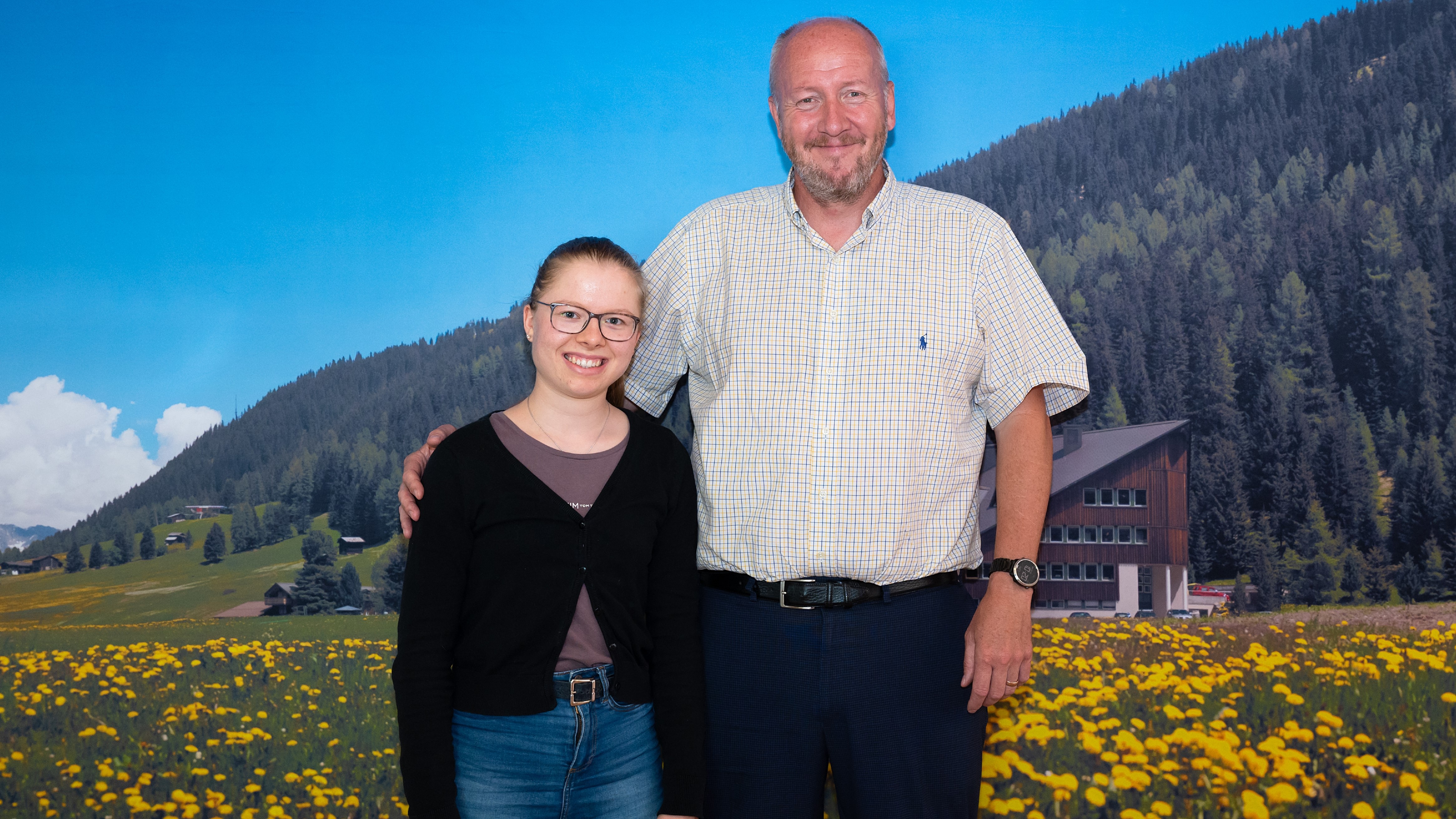Competing with Cats
Winner of the AO Foundation's special prize at Schweizer Jugend Forscht participates in eCM Conference

Noée Niggli owes a lot to her three cats. If the 19-year-old from the canton of Solothurn wouldn't feed her cats according to the "BARF" regimen (the acronym BARF stands for Biologically Appropriate Raw Food), she might never have submitted her graduation paper (Maturaarbeit) to Schweizer Jugend Forscht, Switzerland's oldest yearly competition for aspiring young scientists. In which case, she would not have won the AO Foundation's special prize and would not have been invited to this year's European Cells and Materials (eCM) Conference in Davos from July 12 to 14.
But let's start from the beginning. Noée Niggli came up with the topic of her paper titled "The Influence of Thiaminase I in Ordinary Carp on the Thiamine Content in Pork by Common Storage—Orienting Preliminary Tests" because the enzyme thiaminase I, which is found in fish organs, destroys vitamin B1 (thiamin). Since Niggli feeds her cats raw fish and meat, she wondered whether the thiaminase I in the fish could destroy the vitamin B1 in the meat if she stored both together. "A small preliminary study, such as I was able to carry out with my modest means, does, of course, not lead to conclusive results," said Niggli. "But I was able to at least conclude from my experiments that you should be careful when storing them, especially if the fish and meat have already been chopped up and the contact area is therefore larger." Such deep-frozen ready mixes for BARF diets are still rare in Switzerland, said Niggli, but are already being offered on a large scale in other countries such as the United States.
Niggli not only received the grade "very good" for her paper at the Schweizer Jugend Forscht award ceremony, but also won the special prize from the AO Foundation and, with it, an invitation to the eCM Conference 2023 in Davos.
"It was very exciting to participate in a scientific conference," said Niggli. She also stated that she gathered a lot of useful information for herself—and that has to do with her cats once more. One of her young cats suffers from a rare disease, the so-called feline inductive odontogenic tumor (FIOT). "My options were to have the cat euthanized or to have it undergo an operation, which involved removing half of the mandible. Niggli opted for the surgery, and the cat is doing well today. "Two papers that were presented at the eCM Conference dealt with similar subjects, albeit in humans. I was able to exchange ideas with experts and found out that prostheses are currently being developed."
AO Research Institute Davos director Geoff Richards was enthusiastic about the youngest participant of the eCM Conference: "Noée Niggli is a cheerful young woman who followed our conference with great excitement." He was particularly impressed that Niggli stepped up to the microphone during the Q&A session. "Her question, which revolved around what happens to the donor site when a bone graft is excised, was smart and scientifically relevant," Richards said.
In addition to her award at Schweizer Jugend Forscht, Noée Niggli now has another reason to be happy: She recently passed the entrance exam for studying veterinary medicine and has just started her dream course at the University of Bern.
You might also be interested in:
- Learning about the 21st eCM Conference's presentation of the latest findings on bone and fracture repair
- Discovering how ARI's Geoff Richards champions improving FTERM gender parity
- Reading how ARI researchers are building global consensus around fracture-related infections with a paper published in 'Nature Reviews Disease Primers'

